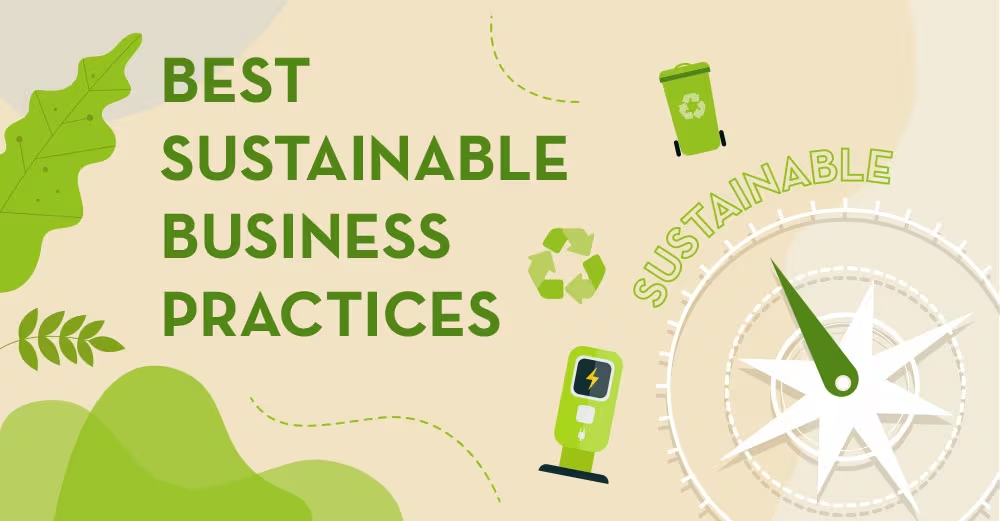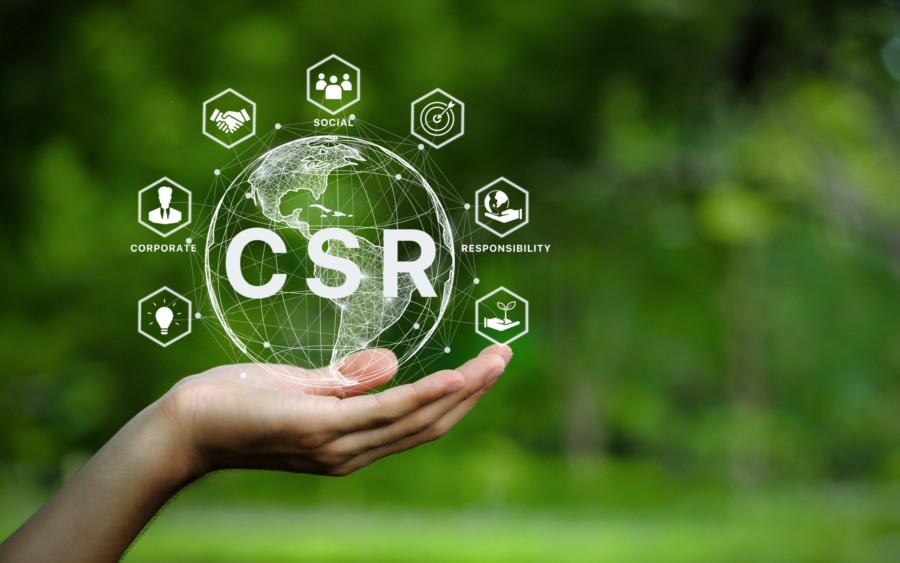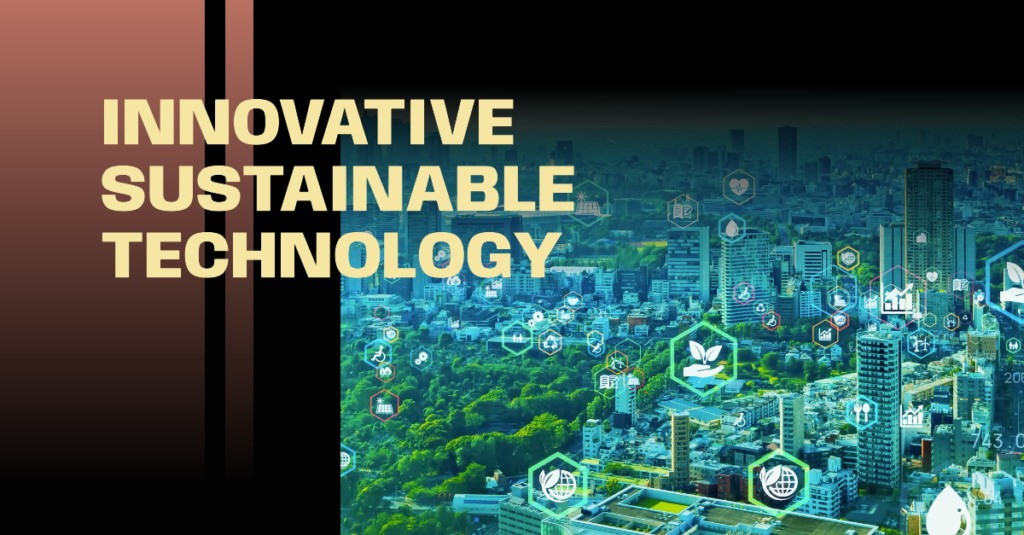In today’s world, businesses are increasingly realizing that adopting sustainable business practices is essential not only for the planet but also for achieving long-term success. Companies that integrate sustainability into their core strategies will likely thrive by building stronger stakeholder relationships, fostering innovation, and driving long-term profitability. This article delves into the key components of sustainable business practices and how they contribute to everlasting success.
Introduction to Sustainable Business Practices
Sustainable business practices refer to the strategies and methods that companies use to meet the needs of the present without compromising the ability of future generations to meet their own needs. These practices are not limited to environmental responsibility but also include social and economic aspects. Companies prioritizing sustainability adopt a holistic approach to their operations, focusing on resource efficiency, reducing waste, and improving employee engagement. Incorporating Environmental, Social, and Governance (ESG) factors is critical for businesses looking to achieve long-term success. ESG frameworks help companies manage risks and opportunities related to sustainability, ensuring that they remain resilient in a rapidly changing global landscape.

Corporate Social Responsibility (CSR) and Its Impact
Corporate Social Responsibility (CSR) plays a crucial role in building a positive brand image and fostering brand reputation. Engaging in socially responsible activities, such as supporting local communities, reducing carbon footprints, or advocating for social causes, allows businesses to establish themselves as ethical and responsible entities. This has a direct impact on brand reputation through CSR, as consumers are more likely to support brands that align with their values. In addition to enhancing a company’s image, CSR initiatives also have the potential to attract and retain talent. Employees feel more engaged and motivated when they know their company is contributing to the greater good, which directly affects productivity and job satisfaction.

Employee Engagement in Sustainability Efforts
Employee engagement is a key driver of successful sustainable business practices. When employees are actively involved in sustainability initiatives, it fosters a culture of innovation and responsibility. Engaged employees are more likely to offer creative solutions that reduce environmental impact and improve business processes. Furthermore, companies with high levels of employee engagement often report improved morale and loyalty, which leads to reduced turnover rates and higher productivity. To encourage employee participation, companies can provide training on sustainability, create green teams, or offer incentives for innovative ideas that contribute to the company’s sustainability goals.

Driving Innovation through Sustainable Practices
Sustainability is not only about reducing environmental impact; it is also a powerful driver of innovation. Companies that adopt sustainable business practices often find new ways to optimize their operations, reduce costs, and create new revenue streams. By focusing on sustainability, businesses can identify opportunities for innovation in eco-friendly products and services that meet the growing demand for green alternatives. This innovation can lead to competitive advantages in the marketplace, as consumers increasingly prefer brands that offer sustainable solutions. Moreover, sustainable innovation helps businesses stay ahead of regulatory changes and ensures compliance with future environmental standards.

Optimizing Resource Efficiency for Long-Term Growth
Resource efficiency is a core component of sustainable business practices. Companies that reduce their use of resources, such as energy and water, while minimizing waste, are better positioned to achieve long-term growth. By optimizing supply chain efficiency, businesses can lower operational costs and improve profitability. Implementing practices such as recycling, energy-efficient production methods, and responsible sourcing helps companies conserve resources and reduce their environmental impact. These practices not only contribute to sustainability but also enhance a company’s reputation among environmentally conscious consumers and investors.

Strengthening Stakeholder Relationships
Building strong relationships with stakeholders is essential for the success of any business. In the context of sustainable business practices, transparency and accountability are key to fostering trust with stakeholders such as customers, investors, and suppliers. Businesses that are open about their sustainability efforts, including their challenges and achievements, are more likely to build long-term partnerships. Brand reputation through CSR initiatives and employee engagement in sustainability can enhance stakeholder relationships by demonstrating a company’s commitment to ethical practices. Additionally, involving stakeholders in sustainability projects, such as collaborative supply chain improvements or community initiatives, further strengthens these relationships.
Sustainable Supply Chain Management
A sustainable supply chain is critical for companies looking to achieve everlasting success. Supply chain efficiency involves implementing sustainable practices throughout the entire supply chain, from sourcing raw materials to delivering the final product. Companies must ensure that their suppliers adhere to ethical and environmental standards, such as reducing waste, minimizing carbon emissions, and promoting fair labor practices. By focusing on supply chain efficiency, businesses can reduce costs, improve product quality, and enhance their reputation. Sustainable supply chains also mitigate risks associated with resource scarcity and regulatory changes, ensuring long-term resilience and success.
Financial Benefits of Sustainability
One of the key advantages of adopting sustainable business practices is the long-term financial benefits they offer. Companies that prioritize sustainability often experience reduced operational costs due to increased efficiency in energy usage, waste management, and resource allocation. Furthermore, businesses that engage in sustainable practices are more attractive to investors who are increasingly looking for companies that align with ESG criteria. Sustainable businesses also tend to have a lower risk profile, as they are better equipped to navigate regulatory changes and market shifts. In the long run, sustainable business practices contribute to improved financial performance and profitability.
Climate Action and Its Role in Business Strategy
Businesses have a critical role to play in addressing climate change, and incorporating climate action into business strategies is a vital component of sustainable business practices. Companies that take proactive measures to reduce their carbon footprints, such as transitioning to renewable energy sources or implementing energy-efficient processes, not only contribute to global efforts to combat climate change but also position themselves as leaders in sustainability. In addition, businesses that align their operations with the goals of the Paris Agreement or other climate frameworks are better prepared to meet future regulatory requirements, which will ultimately enhance their long-term success.
Developing Sustainable Products and Services
The demand for eco-friendly products and services is on the rise, and businesses that innovate in this space are more likely to achieve long-term success. Developing sustainable products involves considering the entire lifecycle of a product, from sourcing raw materials to disposal or recycling. By creating innovation in eco-friendly products, businesses can tap into new markets, meet consumer demand for sustainable alternatives, and reduce their environmental impact. Moreover, offering sustainable products can enhance brand loyalty and differentiate a company from its competitors. To succeed in this area, businesses must invest in research and development and collaborate with suppliers and customers to ensure that their products meet the highest sustainability standards.
Sustainability Reporting and Transparency
Transparency is a key element of sustainable business practices. Companies that regularly report on their sustainability efforts, including progress toward ESG goals and other environmental, social, and governance metrics, demonstrate accountability to their stakeholders. Sustainability reporting allows businesses to showcase their achievements while identifying areas for improvement. Moreover, transparent reporting builds trust with investors, customers, and employees, all of whom are increasingly prioritizing sustainability. Businesses that are open about their challenges and successes in sustainability are better positioned to build strong relationships with stakeholders and ensure their long-term success.
Future Trends in Sustainable Business
As businesses continue to evolve, new trends in sustainability are emerging that will shape the future of sustainable business practices. Technologies such as artificial intelligence, blockchain, and the Internet of Things (IoT) are being leveraged to improve supply chain efficiency, optimize resource usage, and reduce environmental impact. Additionally, future regulations are likely to place even greater emphasis on sustainability, making it essential for businesses to stay ahead of these changes. By embracing innovation and staying attuned to emerging trends, businesses can ensure their everlasting success in a rapidly changing world.
Conclusion
Sustainable business practices are no longer optional; they are a critical component of long-term success. By adopting sustainable strategies, companies can improve their brand reputation, foster employee engagement, optimize supply chain efficiency, and drive innovation in eco-friendly products. In addition to the environmental and social benefits, sustainability also offers significant financial rewards, making it a smart business strategy for the future. As sustainability continues to evolve, businesses that remain committed to their goals will be better positioned for everlasting success.






4 thoughts on “Sustainable Business Practices for Everlasting Success”
Comments are closed.